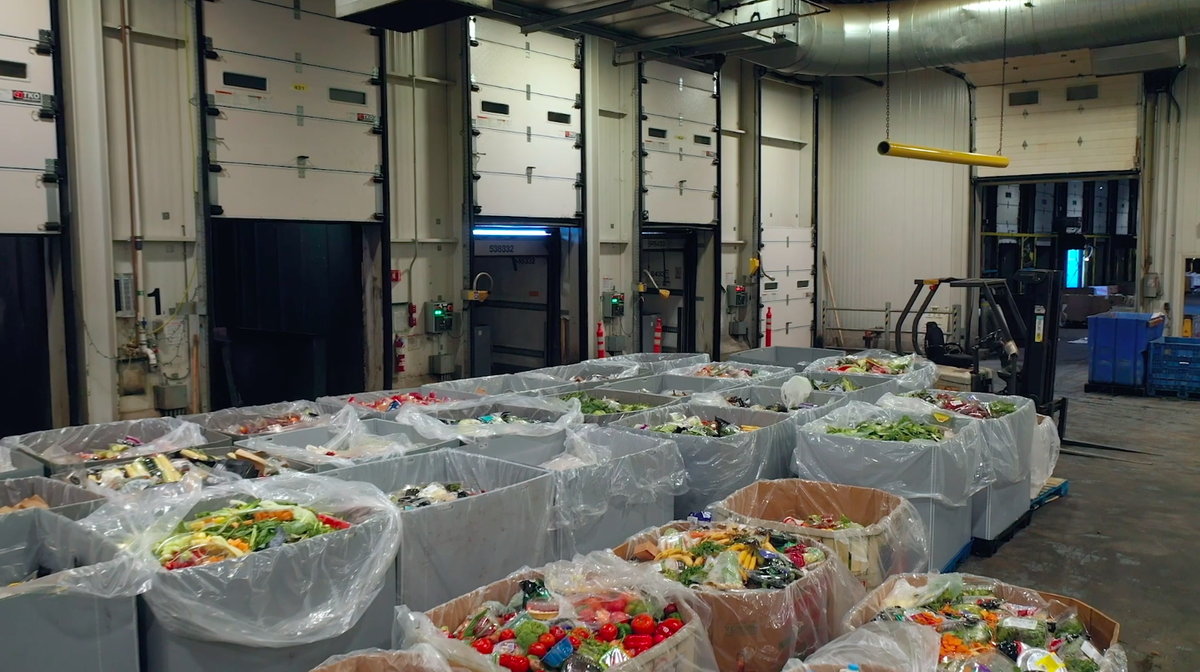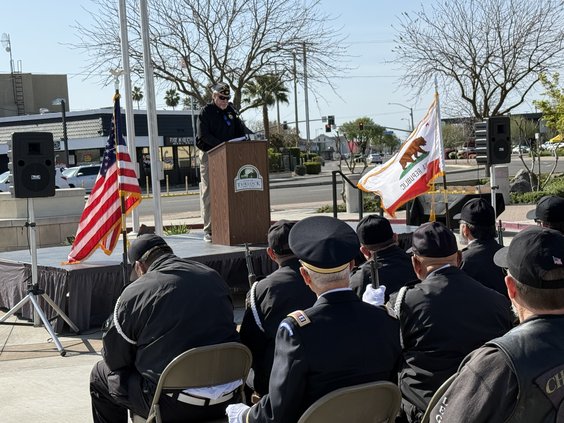Though we may still be months away from the opening of the new 65,000 square-foot Divert Inc. facility that will process unsold food from grocery stores into renewable natural gas, the Massachusetts-based technology company announced last Tuesday that they were entering in a partnership with Blue Diamond Growers.
Blue Diamond — the world’s leading almond company with processing plants in Turlock, Salida and Sacramento creating products like almond flour, almond oil and almond protein powder— will be sending almond processing byproducts to the facility being built at 4407 W. Main St. for it to be transformed into renewable energy.
“We are proud to join forces with a company like Blue Diamond Growers that shares our mission and commitment to sustainability,” said Ryan Begin, CEO and co-founder of Divert. “The organic byproducts from food processing have tremendous value that can be converted into renewable energy to power our communities. With California being the largest food manufacturer in the U.S., there is a real opportunity for the state to adopt the technologies and infrastructure for food processing that will have a positive impact on the climate crisis. We applaud Blue Diamond for being at the forefront of the industry in implementing solutions to better our world.”
The renewable energy created from the byproducts are expected to be used to supply local homes and businesses, as well as soil amendment that allows for the nutrients to return to farmland thereby supporting further food growth.
Prior to the facility’s groundbreaking in April of 2023, Divert came to an interconnection agreement with PG&E. When the project is completed and operational, processed Renewable Natural Gas (RNG) will enter PG&E’s on-site transmission line, replacing fossil fuel gas with a carbon negative renewable fuel.
The process of creating renewable energy starts with unsold food material being liquefied and purified before being processed into a finished clean food slurry. The slurry is then pumped directly into an on-site anaerobic digester, where it is turned into biogas, a mixture of gasses, primarily consisting of methane, carbon dioxide and hydrogen sulfide. The equipment then removes impurities from the biogas and upgrades it into pipeline quality RNG to meet utility company standards.
“Blue Diamond’s long history of furthering the use of almonds and almond byproducts is an important part of our sustainability story and why our almonds have a record of very low waste,” said Dan Sonke, Head of Sustainability at Blue Diamond Growers. “This partnership with Divert is a way to continue our legacy of putting resources to their best and highest value for our farmer-owners and community.”
The facility is expected to be completed sometime during the fourth quarter of this year. There will be roughly 40 employees, including plant managers, technicians and truck drivers.
According to Divert, the United States alone generates more than 100 million tons of food waste annually, with over 50% going to landfills or incinerators. Additionally, food waste contributes 8% to 10% of global greenhouse gas emissions. Financially, American food retailers waste $25 billion in food each year. To combat the issue, state and municipal food waste laws have been increasingly enacted in recent years to preserve landfill capacity and curb greenhouse gas emissions. In California, that comes in the form of Senate Bill 1383.
SB 1383 was signed into law by former governor Jerry Brown in 2016, establishing a statewide effort to reduce emissions of short-lived climate pollutants in various sectors of California's economy, one of those sectors being the food and retail industry. Beginning in 2022, SB 1383 required every jurisdiction to provide organic waste collection services to all residents and businesses. Additionally, businesses had to begin collecting, sorting and transferring organic waste to a specified composting facility, community composting program or other collection activity or program.
More information on Divert Inc. can be found at www.divertinc.com.









